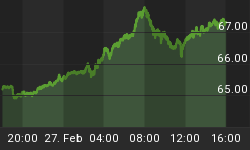With the close of a $60-billion mega-merger, US-based agricultural giant Monsanto is now the property of German conglomerate Bayer, and now the new owners are hoping that a name change will allow for rebirth that isn’t tainted by genetic modification.
In April, the US Department of Justice greenlighted the $60-billion Bayer-Monsanto merger despite widespread opposition from farmers and other stakeholders across the country.
All told, the deal cost Bayer about $63 billion, taking Monsanto’s debt into account, and is the first time that a German company has carried out such as massive acquisition.
But it was an acquisition that came with baggage; hence the decision to lose the Monsanto name, which had become synonymous with the GMO bogeyman.
A frequent target of attack by anti-GMO activists, Monsanto has even been labeled the most hated company in the world. Over the past few years, Monsanto has spent some $100 million on advertising costs in an attempt to improve brand image.
Since the late 1990s, Monsanto itself has been mulling a name change as part of its public relations strategy, but considerations of cost and tradition kept it from moving ahead with the idea.
For German Bayer, though, founded in 1901 and big on reputation, there was no question about changing Monsanto’s name.
“Bayer sees that the Monsanto brand is rat poison in the public eye,” the St. Louis Post-Dispatch quoted Eric Schiffer, chairman of Reputation Management Consultants in Irvine, California, as saying. “It’s a threat to their brand to allow the name to continue.”
With the merger just completed, no one can be sure if the name change will have the desired effect, but skeptics definitely abound, and much will depend on whether the anti-GMO crew simply retargets the new brand.
Raphael Thomadsen, associate professor of marketing at Washington University’s Olin Business School, told the St. Louis Post-Dispatch that “Unless the company is going to change some of its practices, it’s hard to see that the Bayer name is not going to get some of the same associations that Monsanto had.” Related: The $1.5 Trillion Student Debt Bubble Is About To Pop
Not only is Monsanto carrying around heavy baggage, but American farmers have stood opposed to the merger.
A recent survey of farmers in the U.S. found that 93 percent of them are against the merger. They fear increasing prices of seeds, fewer options, and decreased bargaining power.
Moreover, opponents of the merger believe that it will massively increase the power of major agrichemical companies that already have a stranglehold on US food system.
"These mergers will result in fewer choices for farmers, higher prices, and less innovation. This extreme consolidation drives up costs for farmers and it limits their choice of products in the marketplace," Roger Johnson, head of the National Farmers Union said.
Projections are that the two merged companies will control over 35 percent of the global market for corn seeds, roughly 28 percent of the global soybean market, and almost 70 percent of the global cottonseed market. The deal, after all, turn the new company into the world’s largest vegetable seed producer with a near monopoly on the broccoli, carrot and onion seed markets.
As SafeHaven reported recently, agriculture is in the hands of a few large corporations now more than ever. In the last two years there were couple of other mergers that significantly tip the balance, with four companies now controlling the vast majority of seeds and agrochemicals on the world market.
Related: Investors Scramble To Secure Property On The Korean Border
Six firms dominated private-sector research on both seeds and crop-protection chemicals: Germany’s BASF and Bayer, US-based firms Dow Chemical, DuPont, and Monsanto, and Swiss Syngenta.
In February 2016, just a few months before Bayer proposed the Monsanto acquisition, Chinese state-owned ChemChina offered $43 billion for Syngenta, and the deal was approved in May last year. In August last year, DowDuPont was formed following the $130 billion merger of Dow Chemical and DuPont.
According to a study by the Agricultural and Food Policy Center at Texas A&M University, recent mergers would likely lead to price increases of 2.3 percent for corn to up to 20 percent for cotton.
By Damir Kaletovic for Safehaven.com
More Top Reads From Safehaven.com:
















